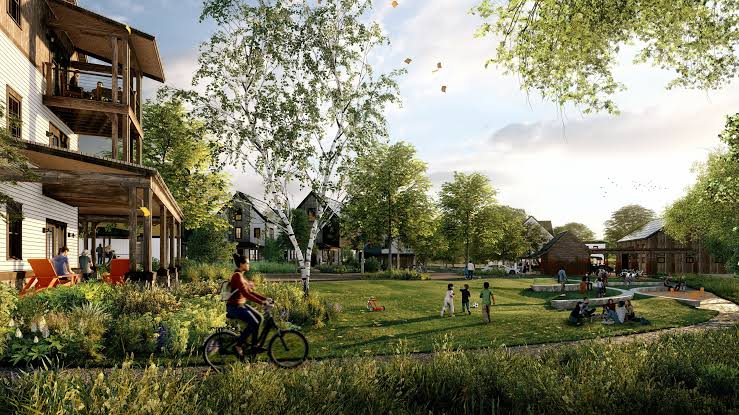Choosing Solitude and Harmony in a Fractured World: The Rise of Eco-Villages
In an increasingly divided and tumultuous global landscape, a growing number of people are seeking refuge in the harmony of isolation, choosing to dwell in the tranquil heart of nature, amidst like-minded individuals in eco-villages. This growing trend, emerging amidst the backdrop of conflict, socio-economic disparity, and imposed global mandates,

In an increasingly divided and tumultuous global landscape, a growing number of people are seeking refuge in the harmony of isolation, choosing to dwell in the tranquil heart of nature, amidst like-minded individuals in eco-villages. This growing trend, emerging amidst the backdrop of conflict, socio-economic disparity, and imposed global mandates, reflects a longing for peace, unity, and personal sovereignty.
The world seems to stand on a precipice. There is an alarming dichotomy where a select few, the creators of a new world order, dictate global agendas, while the majority, the disadvantaged, grapple with the everyday struggle of balancing work and income. This chasm breeds discord, frustration, and a sense of powerlessness that seems to be reaching a boiling point, particularly in regions like Eastern Europe, Ukraine, Russia, and the Baltic States.
Governments and authorities insist that individuals must choose a side in this ideological warfare, with severe consequences for those who diverge from the chosen path. Civil liberties are compromised under the guise of greater good, and freedom of choice is becoming increasingly elusive.
An example of this encroachment is the controversial imposition of mandatory vaccinations. While many see vaccines as an important tool in combating the global health crisis, the idea of enforced inoculations rubs against the grain of personal choice and bodily autonomy for others. The growing prevalence of edible insects as an environmentally friendly protein source, as opposed to traditional meat, is another point of contention. It appears to many as if their way of life is being stripped away, one mandate at a time.
Against this backdrop, the appeal of life in eco-villages becomes clearer. In the embrace of untamed wilderness, away from the pressure and expectations of a society in turmoil, individuals find a haven. These self-sufficient communities offer an escape from the constraints of a divided world. Here, they can live life on their own terms, free from the oppression of the world order and the constant noise of conflict.
Eco-villages represent more than just an escape; they are a testament to the human spirit's resilience and adaptability. Rooted in sustainable living, they embody a collective decision to prioritize the health of the planet over the convenience of modern, often destructive, habits. Their inhabitants are unified not by their nationality, wealth, or societal status, but by their shared vision of a peaceful, equitable, and sustainable existence.
In these communities, individuals regain control over their lives, their choices, and their future. They reject the notion of blind allegiance to imposed mandates and instead foster an environment of mutual respect, tolerance, and shared responsibility. Life in an eco-village is not just about surviving but thriving in alignment with nature and personal beliefs.
This trend towards self-sufficiency and eco-conscious living might be born out of necessity and a desire for freedom, but it has the potential to inspire a broader societal shift. While the rest of the world grapples with conflict and division, eco-villages stand as a beacon of harmony, demonstrating that unity, peace, and respect for nature are not just aspirational ideals, but achievable realities.
As more people turn towards this way of life, eco-villages and the philosophy that underpins them could play a crucial role in shaping our collective future. They offer an alternative narrative, one that diverges from division and conflict, towards understanding and respect, from mindless consumption to sustainable living. Amidst the chaos of a world at odds with itself, eco-villages represent a quiet but potent rebellion, a testament to the indomitable spirit of humanity and a glimpse into a hopeful future.




